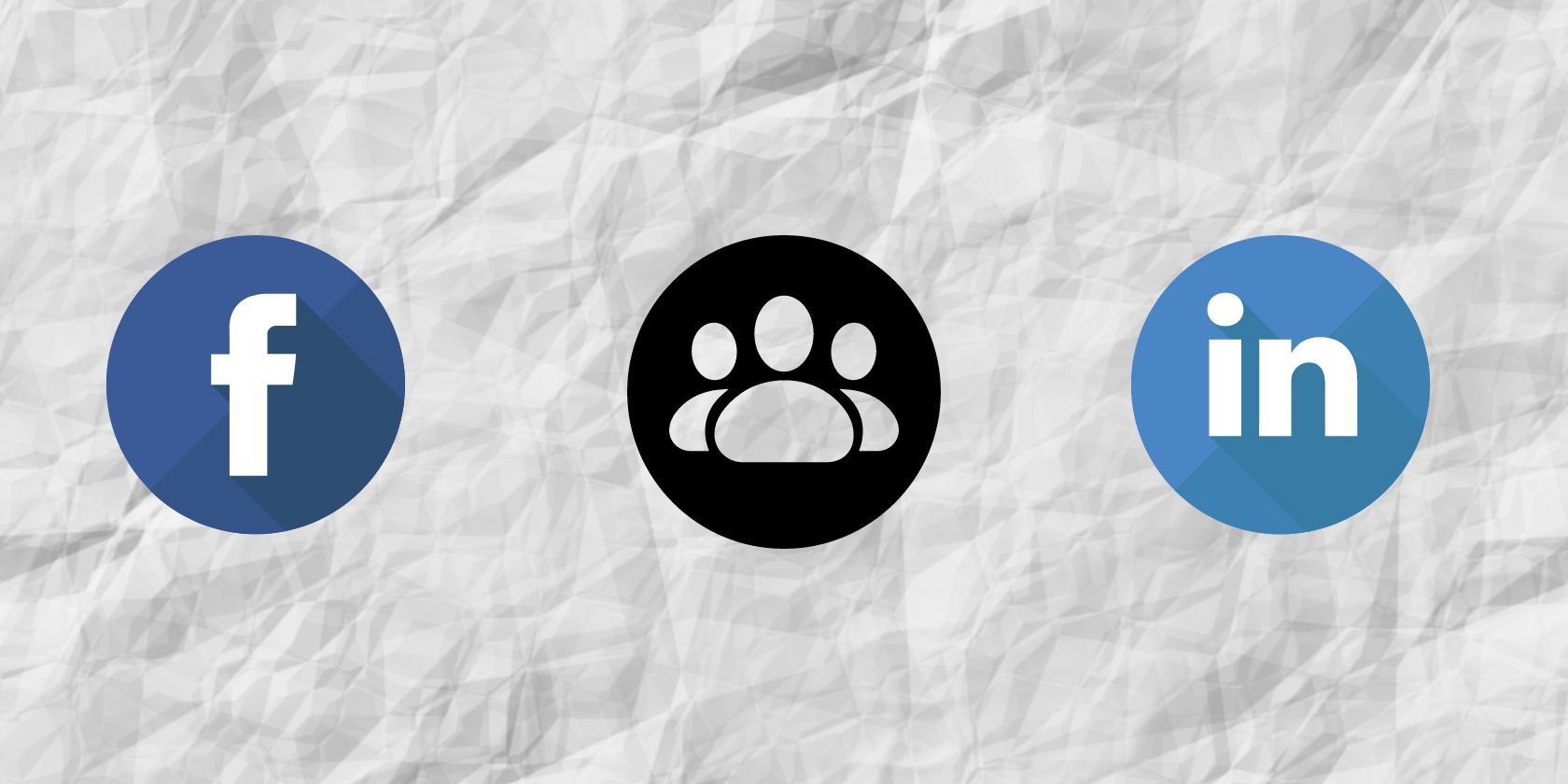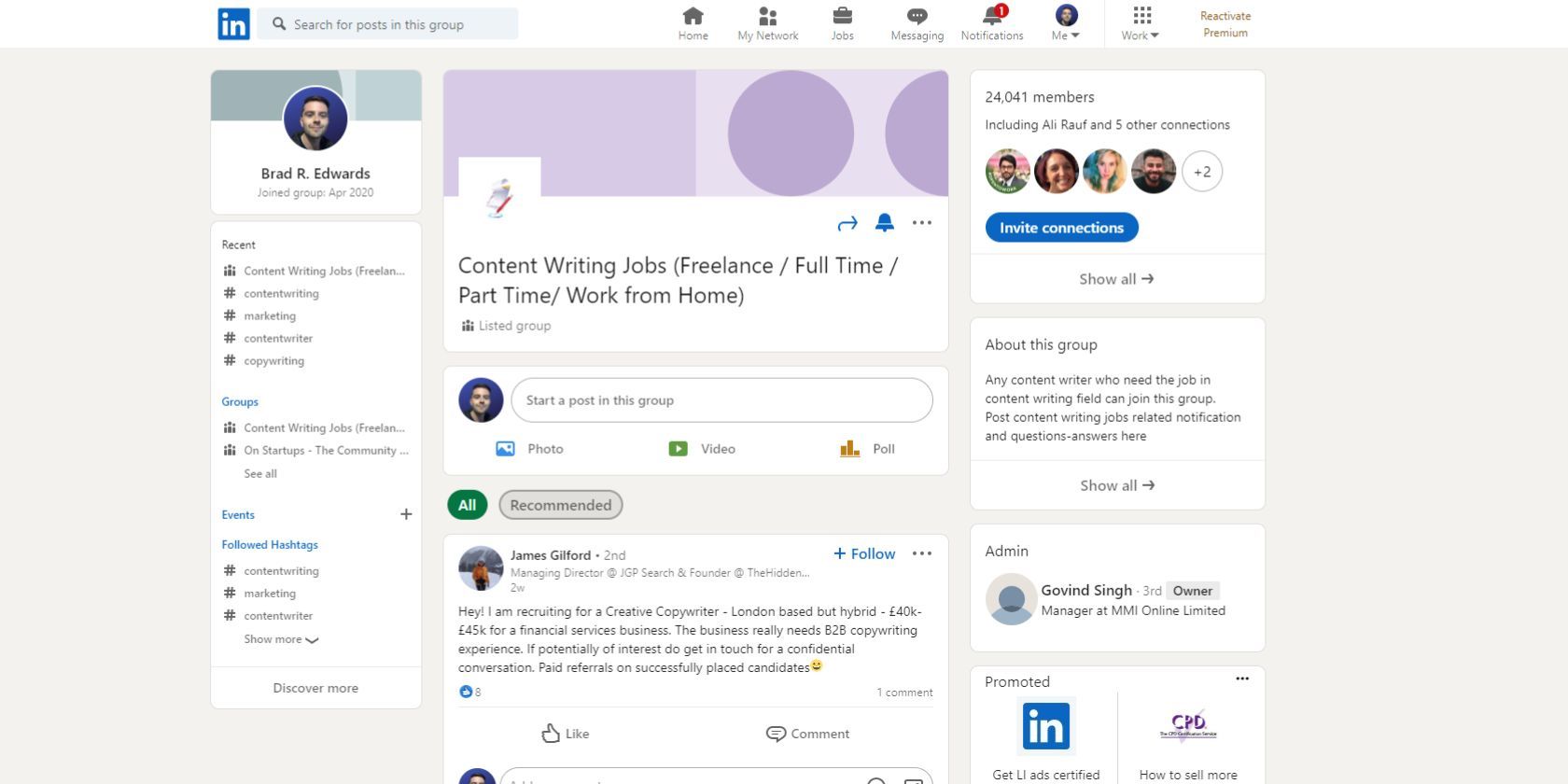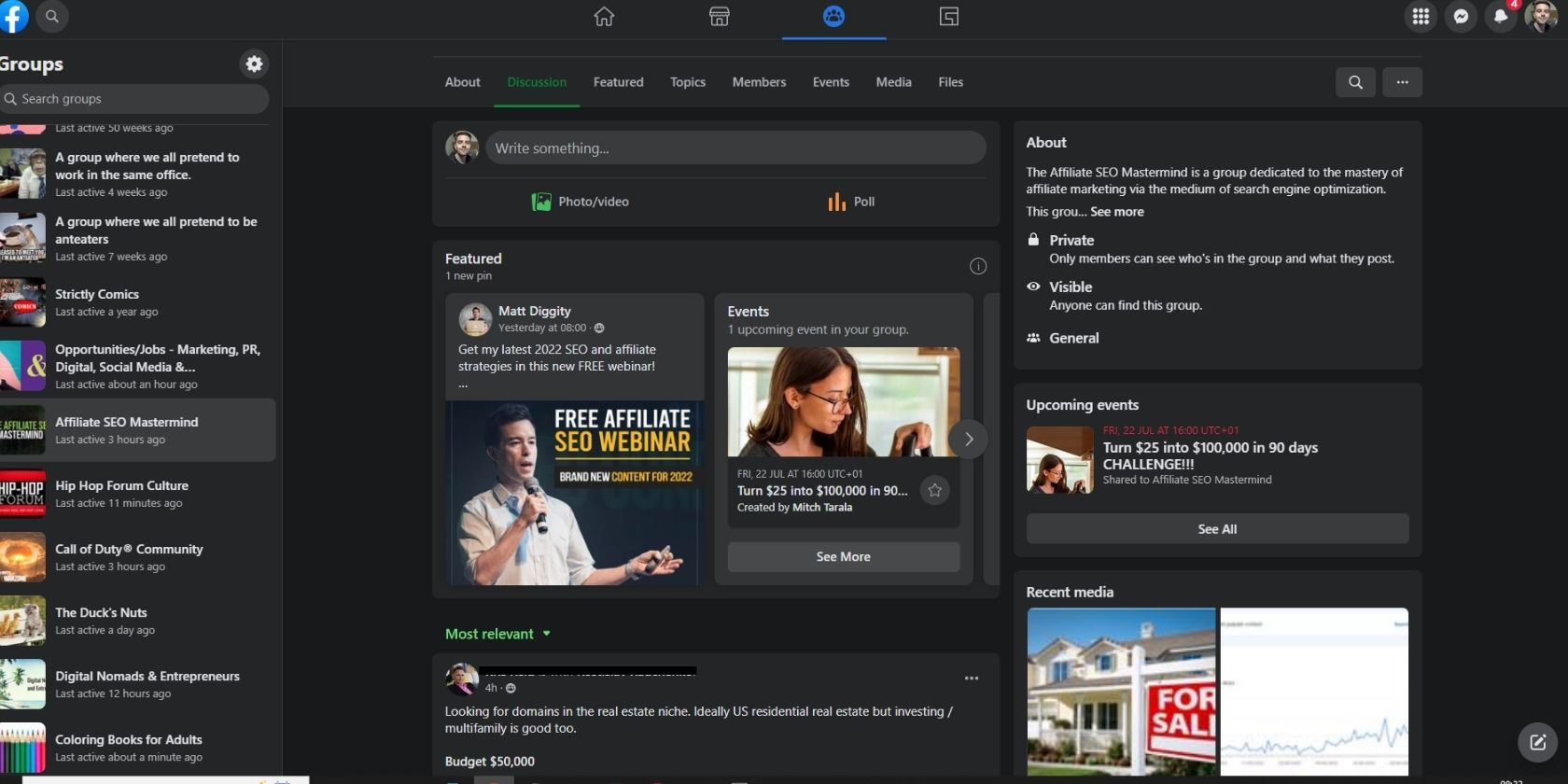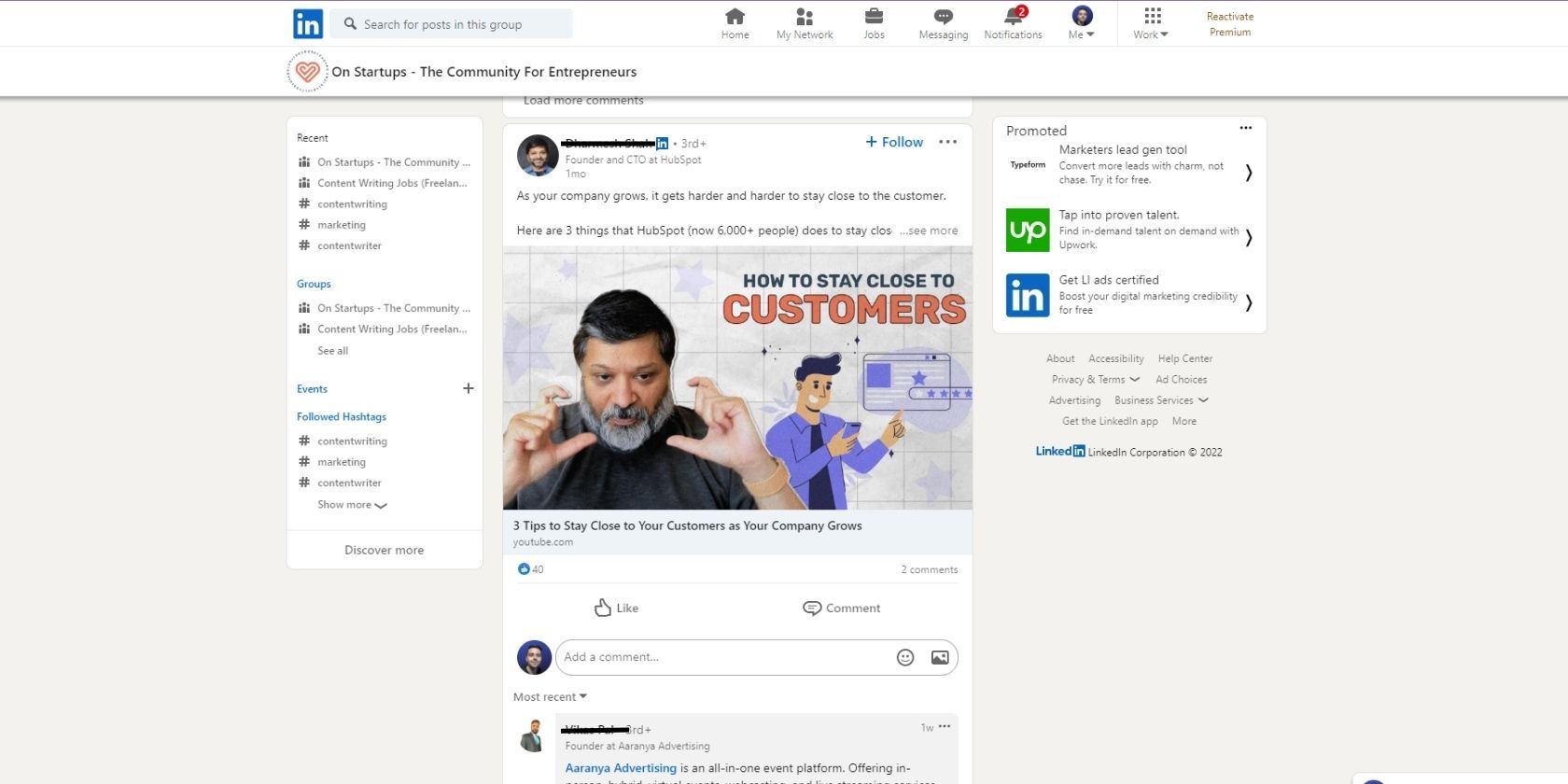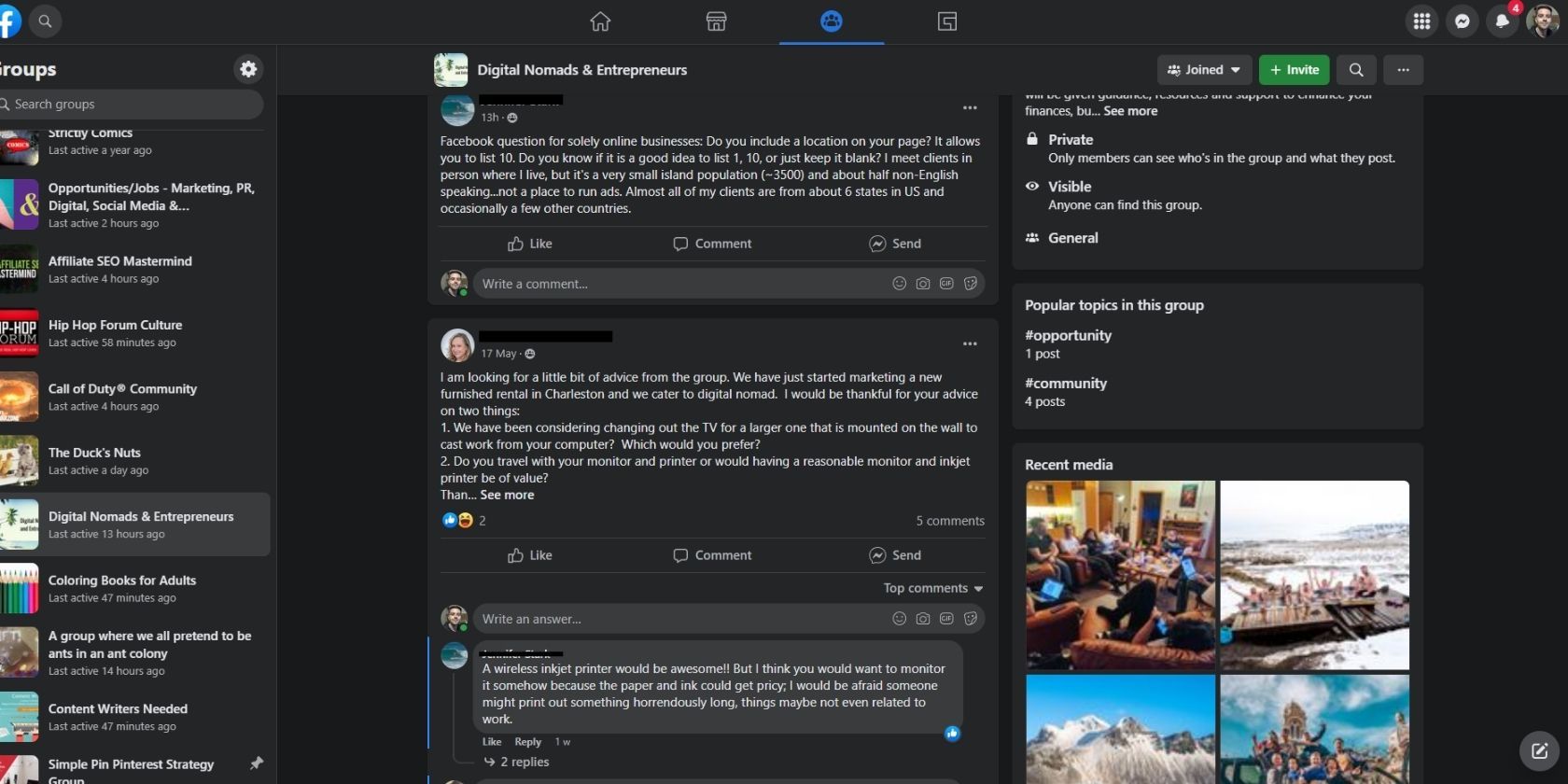Facebook and LinkedIn have a lot of similarities. While the clear distinction between the platforms is that one is generally suited to everyday people and the other to professionals, these platforms are so similar that many people dub LinkedIn "Facebook for professionals".
Among their similarities, Facebook and LinkedIn both have a Groups feature, which can lead you to communities of like-minded people that share the same interests as you. If you're debating whether to use Facebook Groups or LinkedIn Groups, then comparing the two is a good start.
LinkedIn and Facebook's Target Audience
LinkedIn is geared towards professionals, which means that the user base on LinkedIn Groups varies between different professional industries and is typically active during the traditional working hours of weekdays.
Since time zones exist, you'll have to experiment with different groups and different times of the day to see when the user base is most active. It's worth mentioning that the LinkedIn About Us page has a tab filled with statistics about the platform and its users which can help you.
On the other hand, Facebook's target audience is essentially anyone. The Groups platform is filled with hundreds of thousands of groups based around any interest, hobby, or subject you can think of. According to a Statista report, there are almost three billion monthly active users on Facebook.
Based on this, it is clear that groups on Facebook are going to be much more active than on LinkedIn due to the sheer difference in the number of active users across the two platforms.
LinkedIn Groups vs. Facebook Groups: User Interface
User experience is an important part of social media and you're not alone if you prioritize the user interface element when choosing between similar platforms. Since Facebook and LinkedIn are among the leading social media platforms, you can bet on their user interfaces being at least passable.
LinkedIn Groups has a simple UI, with a scrolling design that takes you through posts in chronological order. You can switch between All Posts and Recommended Posts, with the latter working better once you've been more active in the group and given the algorithm time to figure out your interests. The user interface is simplified, with everything quite clearly signposted and multiple post format options.
While Facebook Groups' user interface is simple to use, it has a bit more of a bloated design than LinkedIn Groups. You scroll down the news feed of your particular group and can sort comments (Most Recent, Top Posts, etc.) to your liking. On the right, you can see media-based posts, while on the left is a list of all the groups you're active in that you can navigate to.
The more cluttered user interface on Facebook Groups can be explained by the greater functionality that the platform has. You can do more on Facebook Groups and the user interface is simple enough to navigate. One of the additional menus includes ways you can find a new Facebook group to join.
LinkedIn vs. Facebook Groups: Quality of Content
Quality of content is a subjective topic. However, there are clear examples of bad content that almost everybody judges to be so, namely self-promoting posts or low-effort posts asking for help or advice about a very basic thing that has already been answered before in the group.
If you're looking to use either LinkedIn Groups or Facebook Groups to connect with like-minded people and have better discussions about your interests or hobbies, then the quality of content on the platforms is an important aspect to consider.
When it comes to the average quality of content, it has to be said that Facebook Groups tend to win. Perhaps because LinkedIn as a whole is a platform based around businesses and making money, there are a lot of LinkedIn Groups that are perfect for job seekers, but not really anyone else.
Unfortunately, a lot of posts on LinkedIn Groups tend to be self-promoting in nature and therefore low quality.
Whereas on Facebook Groups, even despite the number of users, the content tends to be based on creating a discussion on a specific topic.
It's worth mentioning again that low-effort content usually appears if a group is unmoderated—and this applies to either platform. So while it does seem as though Facebook Groups tend to have the better quality of content on average, this does largely depend on what type of group you're in, how many members it has, and how well-moderated the group is.
There are different types of Facebook Groups. Closed or secret groups can often have better content simply because they limit new members from joining. Moderators of these groups tend to be a bit more active and caring about the quality of discussion in the group.
Why Is Facebook Groups the Better Platform?
Based on a few points of comparison, it seems that Facebook Groups is likely to be the best option for you. While you may reasonably think that LinkedIn Groups might be best if you're looking to join communities based around professional discussion, the reality is that the LinkedIn Groups platform just doesn't have much going for it.
Groups on LinkedIn have too many self-promoting posts, a lack of actual discussion, and a much lower active user base than you'd find on Facebook Groups. This means that LinkedIn Groups falls behind when considering both platforms against each other.
Facebook Groups is likely better simply because of the popularity of Facebook on the whole. Years of pretty much everyone congregating in one place and joining groups on the platform they already use daily gives Facebook an edge over the competition.
However, that doesn't mean this will always be the case. LinkedIn is a great place to cultivate a professional network. If you find that there are some LinkedIn Groups that have users but fail due to a lack of moderation or direction, you can always create your own LinkedIn Group and build a community from the ground up.
Find Your Community on Facebook Groups
Facebook Groups is the dominant platform when it comes to finding online communities with people that share the same interests as you: professional or otherwise. They are extremely easy to find and joining only requires a Facebook account.

